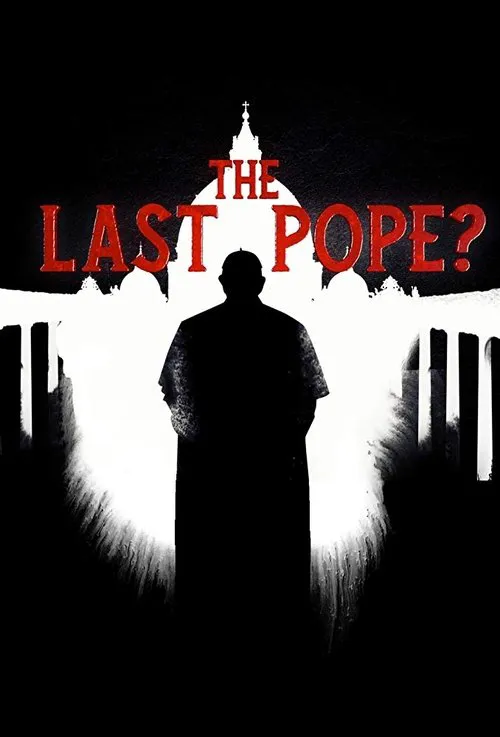The Last Pope?

Plot
The Catholic Church has long been fascinated by St. Malachy's prophecy, a supposed prediction of the future Popes from the medieval cleric himself. Over a century ago, in the early 1100s, St. Malachy, a respected Catholic priest, claimed to have received a divine vision, which granted him the foresight to write down the mottos of all the Popes from his time until the very end. This enigmatic prophecy has piqued the interest of countless faithful and skeptics alike, as it allegedly foretells the succession of the world's spiritual leaders. According to tradition, St. Malachy's prophecy contains 112 mottos, each corresponding to a Pope spanning the centuries. One of these mottos, number 112, reads "Peterus Romanus." Initially, the Catholic Church only recognized 111 Popes, each with their respective mottos, but in the late 1950s or early 1960s, the church added the 112th Pope, attributing the motto "Peterus Romanus" to him. The question remains, though: Why was "Peterus Romanus" included as the 112th Pope? According to interpretations, this motto signifies the return of the Catholic Church to its Roman roots, symbolizing a revival of ancient traditions and an emphasis on the papacy's authority within the church. However, critics and skeptics argue that this development serves to validate the existence of the prophecy, thereby lending credence to the notion that Benedict XVI is, in fact, the 111th and final Pope. As we fast-forward to the modern era, Benedict XVI, formerly Joseph Ratzinger, became the 265th Pope of the Catholic Church, ascending to the papacy in 2005. Critics contend that Benedict XVI embodies the last elements of Malachy's prophecy, citing his name, background, and characteristics as a match for the 111th Pope. According to the prophecy, he is supposed to be a German-speaking, scholarly individual, deeply invested in preserving the traditions of the church, much like Joseph Ratzinger. The notion that Benedict XVI is the 111th and final Pope has garnered significant attention in the media and from various corners of the Catholic Church, but the majority of theologians remain skeptical. The reasoning behind this is multifaceted. For starters, there are numerous inconsistencies within St. Malachy's prophecy itself, with some interpretations suggesting that the prophecy contains multiple possible candidates for each Pope, casting doubt on its reliability. Additionally, the Catholic Church's decision to add the 112th Pope with the motto "Peterus Romanus" raises suspicions about the intention behind including this supposedly "predicted" Pope. Critics argue that by introducing the 112th Pope, the Catholic Church might be attempting to validate its own existence, thereby ensuring a continued presence and role within the global landscape, rather than genuinely accepting St. Malachy's prophecy as an accurate guide to the future. In the wake of Benedict XVI's papacy, the Catholic Church found itself at a crossroads, grappling with the implications of the prophecy. If the last Pope prophecy indeed holds true, it implies that a radical transformation is on the horizon. One possible interpretation posits that the collapse of the papal institution, and indeed the Catholic Church itself, is imminent. This perspective suggests that the last Pope would mark a turning point in the history of the church, where its authority and relevance start to wane. However, the potential consequences for the church and the world at large are far more profound and wide-reaching. In some interpretations, the collapse of the Catholic Church might usher in a new era of spiritual enlightenment, where the emphasis shifts from dogma to personal conviction and direct experience. This could signal the rise of more fluid, dynamic forms of spirituality, which may eventually supplant traditional institutions. Others predict a far more ominous outcome, hinting at the emergence of a new world order that will marginalize the institutions of the past, leading to a period of unprecedented turmoil and upheaval. In this scenario, the collapse of the Catholic Church serves as a harbinger for a global revolution that will transform the way we think, act, and interact as a society. As we navigate the intricacies of St. Malachy's prophecy and its alleged connection to Benedict XVI, we are faced with a fundamental question: Can the actions of a single individual, however significant they may be, be seen as the culmination of a long foretold prophecy? In the end, it is up to the faithful and skeptics alike to ponder the enigmatic visions of St. Malachy, weighing the evidence and drawing their own conclusions about the implications of this enigmatic prophecy for the Catholic Church and the world.
Reviews
Recommendations



